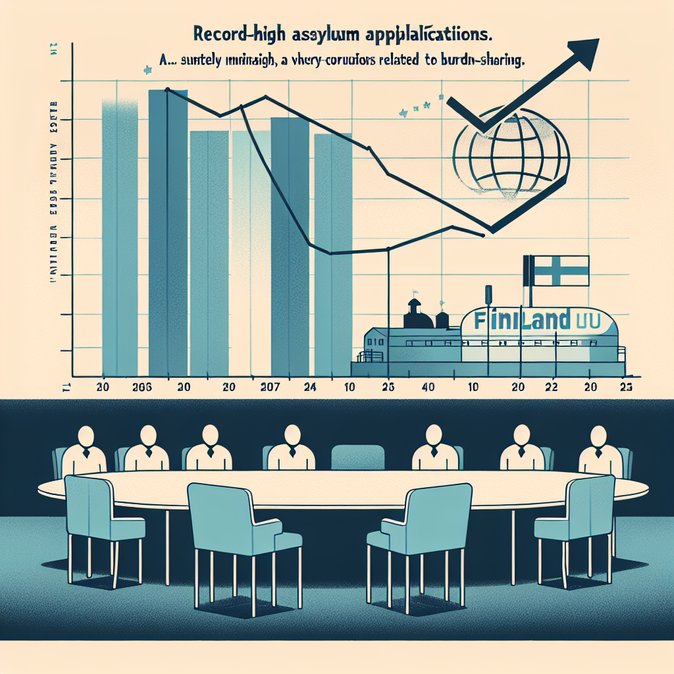
The OECD’s 2024 migration report, released overnight, shows asylum applications across the 38-member bloc climbing to an all-time high of three million—up 13 % year-on-year. While the United States drove much of the increase, Finnish officials note that applications lodged in Finland fell 8 %, continuing a downward trend since the temporary closure of the eastern land border with Russia in late 2023.
![Record OECD asylum numbers prompt Finnish policy soul-searching]()
Interior-ministry analysts say Finland’s share of total OECD claims is now just 0.3 %, yet the report’s broader findings could affect upcoming debates on extending the emergency border-rejection law beyond July 2026. Human-rights NGOs argue that negative optics—Finland positioned alongside hard-line peers—may deter skilled migrants weighing Nordic destinations.
For employers, the headline figure matters because EU-level talks on a “mandatory solidarity mechanism” for relocating asylum seekers are expected to accelerate. Any quota for Finland could tighten local processing capacity, risking longer timelines for work-based residence permits unless additional Migri staff are budgeted. Multinationals are advised to monitor next week’s parliamentary question hour, where the government will outline how it reconciles talent-attraction goals with asylum obligations under the OECD data.

Interior-ministry analysts say Finland’s share of total OECD claims is now just 0.3 %, yet the report’s broader findings could affect upcoming debates on extending the emergency border-rejection law beyond July 2026. Human-rights NGOs argue that negative optics—Finland positioned alongside hard-line peers—may deter skilled migrants weighing Nordic destinations.
For employers, the headline figure matters because EU-level talks on a “mandatory solidarity mechanism” for relocating asylum seekers are expected to accelerate. Any quota for Finland could tighten local processing capacity, risking longer timelines for work-based residence permits unless additional Migri staff are budgeted. Multinationals are advised to monitor next week’s parliamentary question hour, where the government will outline how it reconciles talent-attraction goals with asylum obligations under the OECD data.










